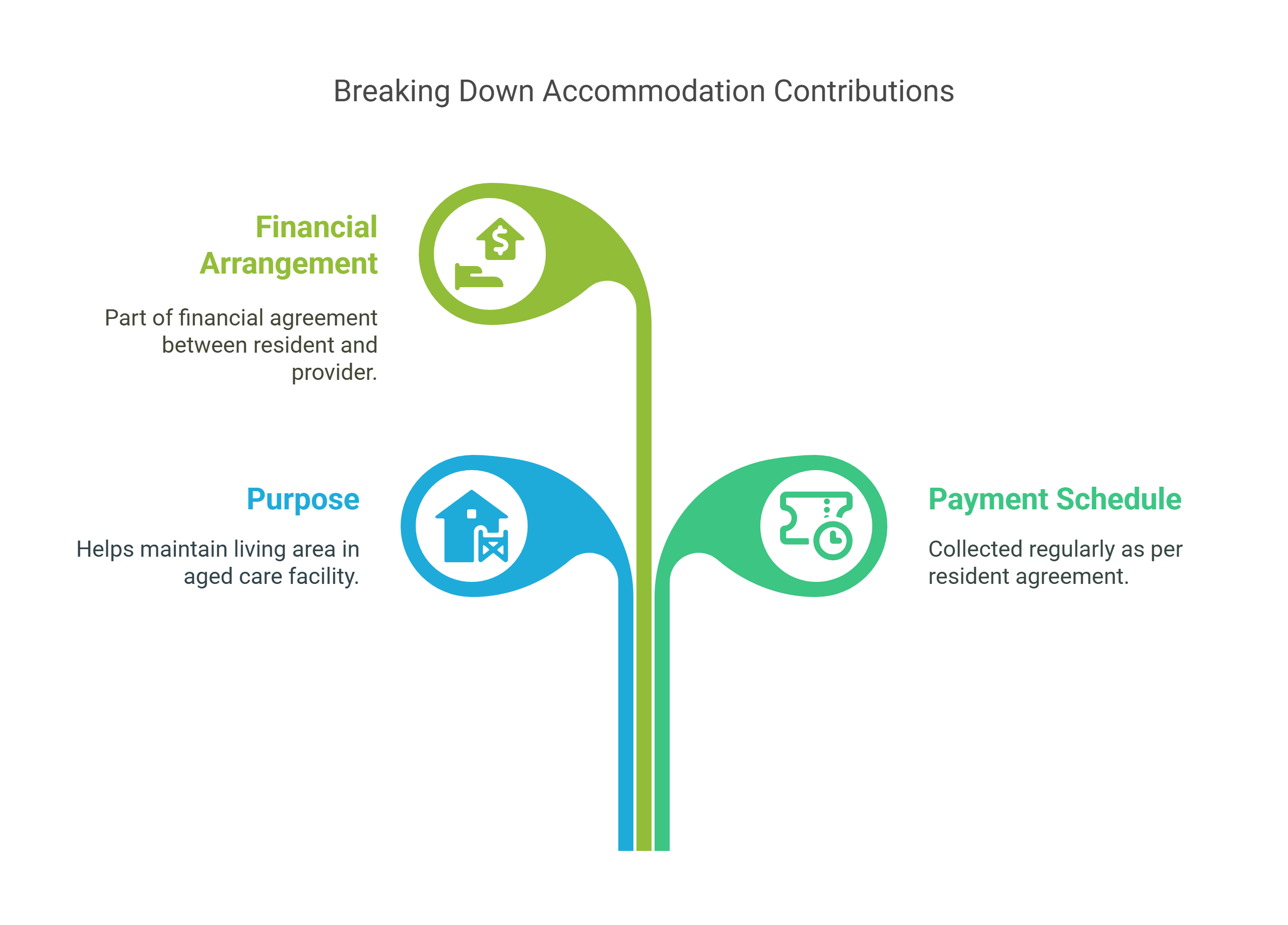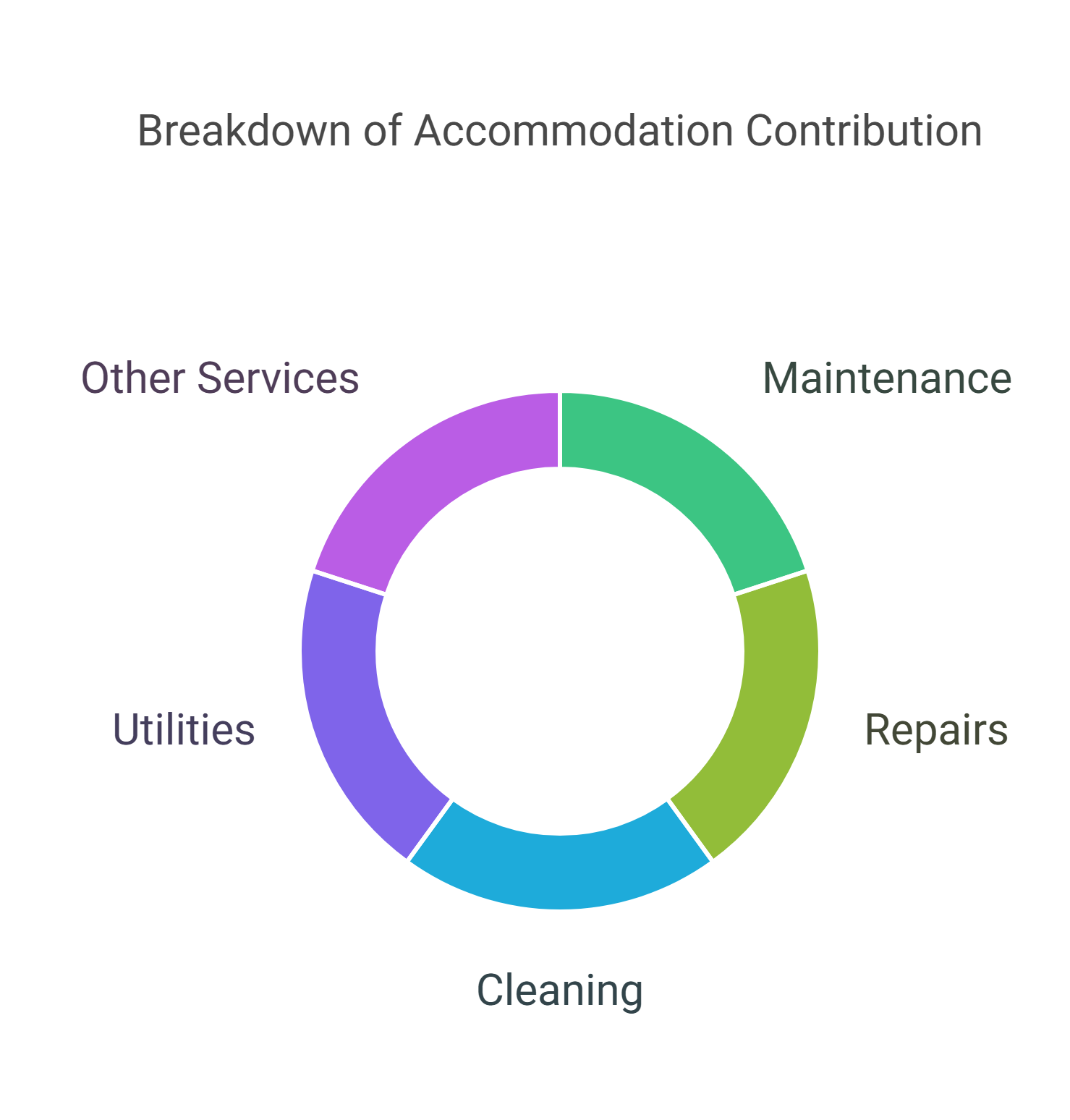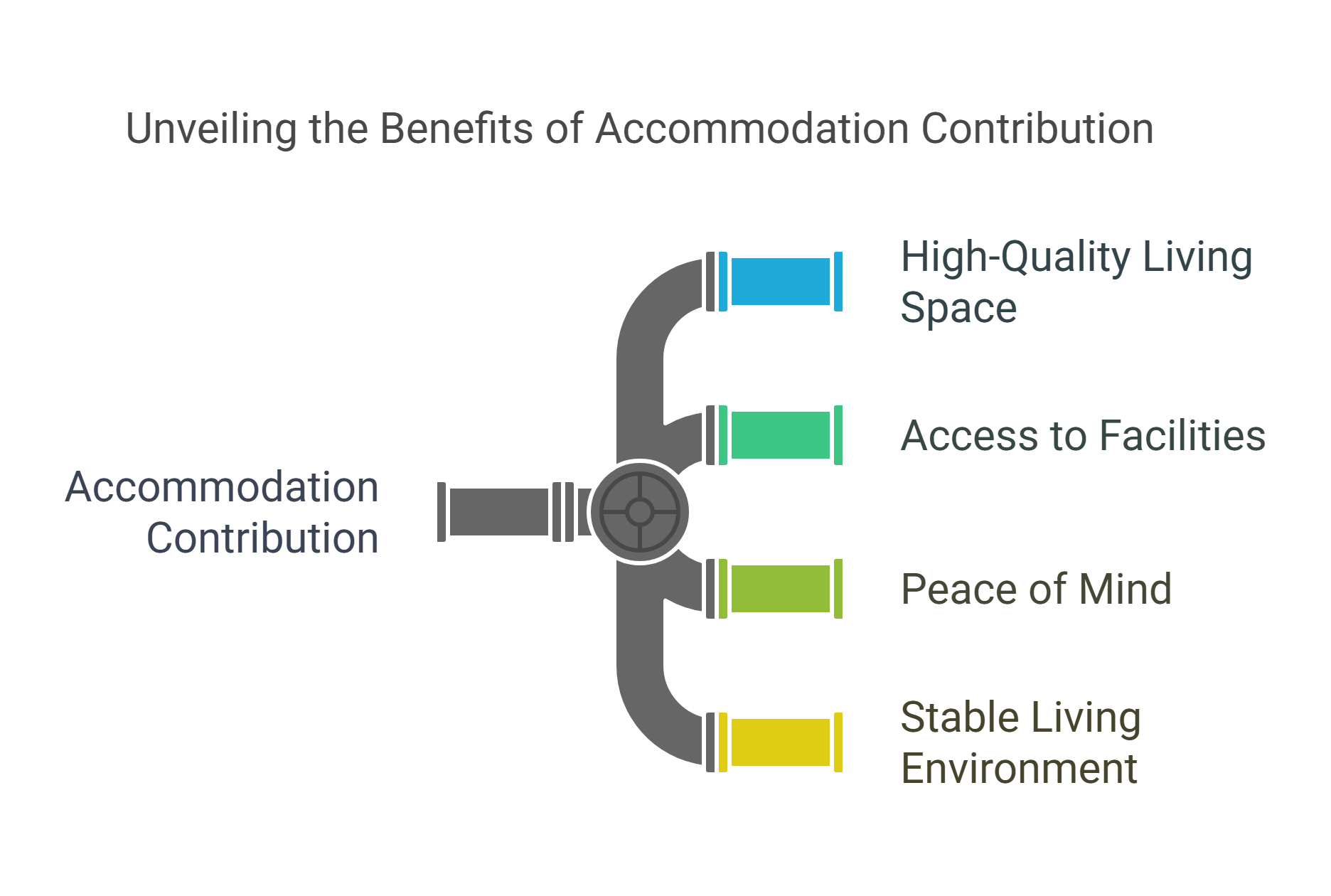What is an Accommodation Contribution?

An accommodation contribution is a fee that a resident pays toward the cost of their living space in a residential aged care facility. This fee is separate from any charges for care or additional services. The fee is collected on a regular schedule and helps with the maintenance of the living area. An accommodation contribution is set out in the resident agreement and is part of the overall financial arrangement between the resident and the care provider.
How is the Accommodation Contribution Determined?
The fee is calculated using several factors. The size and condition of the room, the type of facilities offered, and the operating expenses of the facility all play a role. The details are explained clearly in the resident contract. The amount is determined based on the cost of running and maintaining the living space. This calculation is designed to be straightforward so that both the resident and the care provider understand what the payment is for.
Who Pays the Accommodation Contribution?
The resident is responsible for paying the accommodation contribution. In some cases, family members or other sources of funding may help with the cost. The fee is taken from the resident’s personal funds or other approved funding sources. The responsibility for paying is clearly stated in the contract to avoid any confusion about financial obligations. Both the resident and the care provider have clear roles in managing this part of the financial arrangement.
What Does the Accommodation Contribution Cover?

The contribution covers a range of expenses associated with the living space. These expenses include the maintenance of the resident’s room and repairs when necessary. The fee may also cover the cost of cleaning, utilities, and other services related to keeping the room in good condition. The agreement explains exactly what is covered by the contribution, giving the resident a clear understanding of what they are paying for. This clarity helps to maintain a positive relationship between the resident and the care provider.
How is the Contribution Collected?
The accommodation contribution is collected on a regular basis, such as weekly or monthly. A set schedule is provided in the resident agreement, which helps the resident plan their finances. The regular collection of the fee contributes to the overall budget that is needed to keep the facility operating smoothly. Any changes to the schedule or the amount are communicated clearly to the resident. This method of collection helps maintain transparency and minimizes any potential misunderstandings about payments.
Record Keeping and Transparency
Both the resident and the care provider are responsible for keeping detailed records of all payments made. The records include the dates of payments, the amounts paid, and a breakdown of what the contribution covers. This documentation is important because it helps resolve any disputes that might arise in the future. When changes occur in the cost or the way the fee is collected, the care provider explains the reasons for these changes. The practice of keeping clear records promotes an atmosphere of trust and clarity between the resident and the facility.
How Does the Contribution Impact the Resident?

The accommodation contribution is a regular expense that helps the resident maintain a high-quality living space in the aged care facility. For the resident, the fee supports a well-kept room and access to the facilities that are needed for everyday living. The clear explanation of the fee in the resident agreement gives peace of mind to the resident and their family. When the arrangement is clear and fair, it contributes to a stable and positive living environment in the facility.
The Role of the Contribution in the Aged Care System
The accommodation contribution is one part of the overall aged care system. It is important because it covers the expenses associated with the living space and the upkeep of the facility. By having a clear and straightforward financial arrangement, the resident is better able to understand what they are paying for and why. This clarity contributes to a smoother experience for both the resident and the care provider. The process is designed to be open and fair, making it easy for everyone to keep track of financial responsibilities.
Final Thoughts
An accommodation contribution is a significant part of the financial arrangement in a residential aged care facility. The fee is used to cover the costs associated with the living space, from maintenance and repairs to cleaning and utilities. Both the resident and the care provider benefit from a system that is based on clarity and transparency. The details of the fee are clearly stated in the resident agreement and are supported by accurate record keeping. With all parties aware of their responsibilities, the financial aspects of living in an aged care facility are managed in a fair and understandable way.

.png)
.png)




